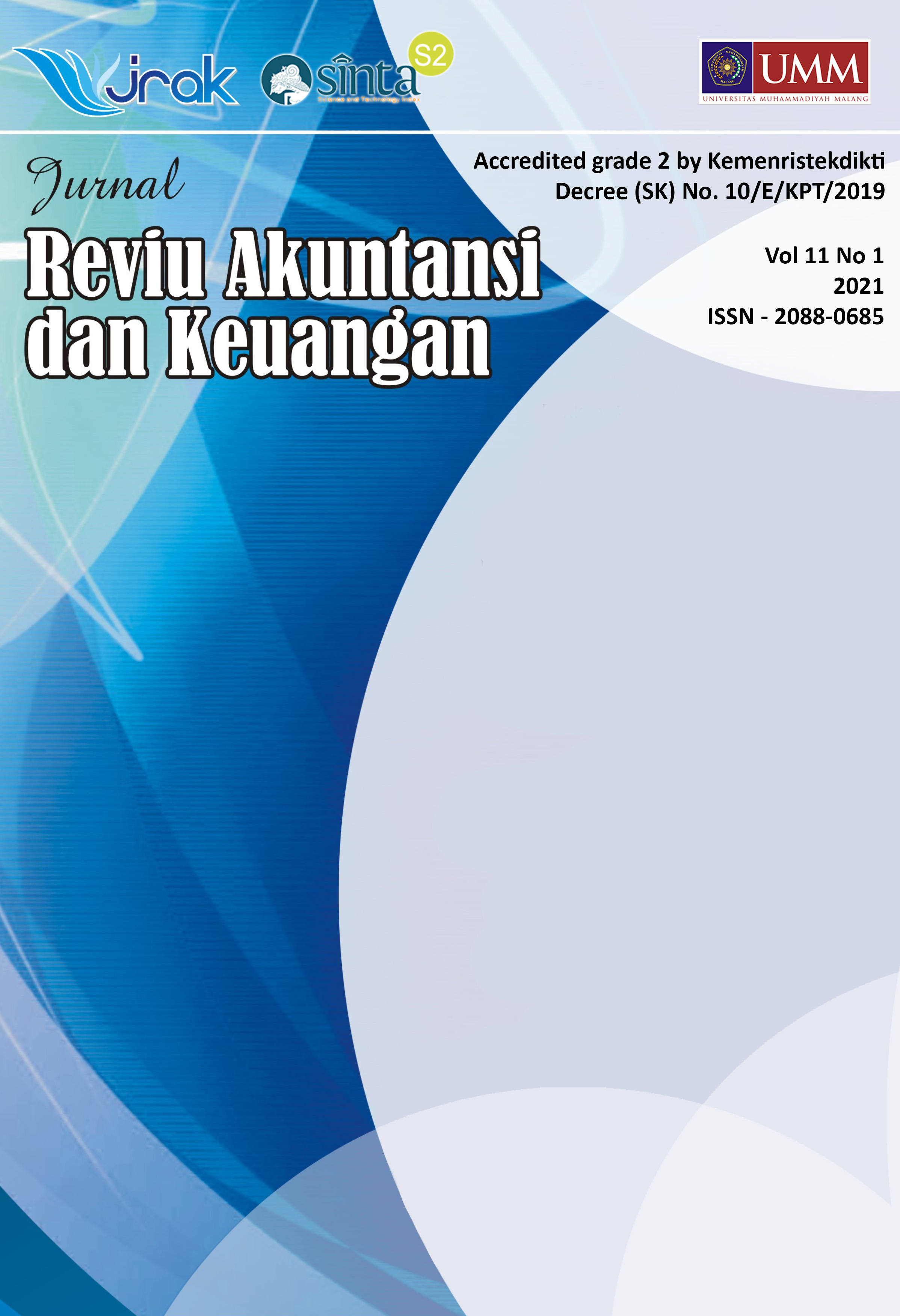Psychological Capital Mediation on the Relationship between Auditor Experience and Acceptance of Under-Reporting Time: An Indonesian Study
DOI:
https://doi.org/10.22219/jrak.v11i1.14734Keywords:
psychological capital, under-reporting time, auditor experienceAbstract
This study aimed to examine the auditor's psychological capital and psychological capital mediation experience on the relationship between the auditor's experience and the acceptance of under-reporting time. To maintain the quality of audit report results, efforts are needed to prevent dysfunctional behavior from auditors. It is also necessary to determine the factors that trigger dysfunctional behavior, especially under-reporting time. This study uses online surveys with respondents from government auditors who work at the Supreme Audit Agency, spread across regional offices throughout Indonesia. Sixty-nine respondents participate in this study. The results showed a relationship between auditors’ experience, psychological capital, and under-reporting time acceptance. This study proves that experience influences psychological capital and psychological capital mediates the relationship between experience and acceptance of under-reporting time. The result contributes to the literature's psychological capital. This study is the first to introduce the relationship between psychological capital, auditor experience, and under-reporting time acceptance.
Downloads
Downloads
Published
Issue
Section
License
Copyright (c) 2021 Jurnal Reviu Akuntansi dan Keuangan

This work is licensed under a Creative Commons Attribution 4.0 International License.

Jurnal Reviu Akuntansi dan Keuangan is licensed under a Creative Commons Attribution-NonCommercial-ShareAlike 4.0 International License.
Authors who publish with this journal agree to the following terms:
- Authors retain copyright and grant the journal right of first publication with the work simultaneously licensed under a Creative Commons Attribution-NonCommercial-ShareAlike 4.0 International License that allows others to share the work with an acknowledgement of the work's authorship and initial publication in this journal.
- Authors are able to enter into separate, additional contractual arrangements for the non-exclusive distribution of the journal's published version of the work (e.g., post it to an institutional repository or publish it in a book), with an acknowledgement of its initial publication in this journal.
- Authors are permitted and encouraged to post their work online (e.g., in institutional repositories or on their website) prior to and during the submission process, as it can lead to productive exchanges, as well as earlier and greater citation of published work (See The Effect of Open Access).










